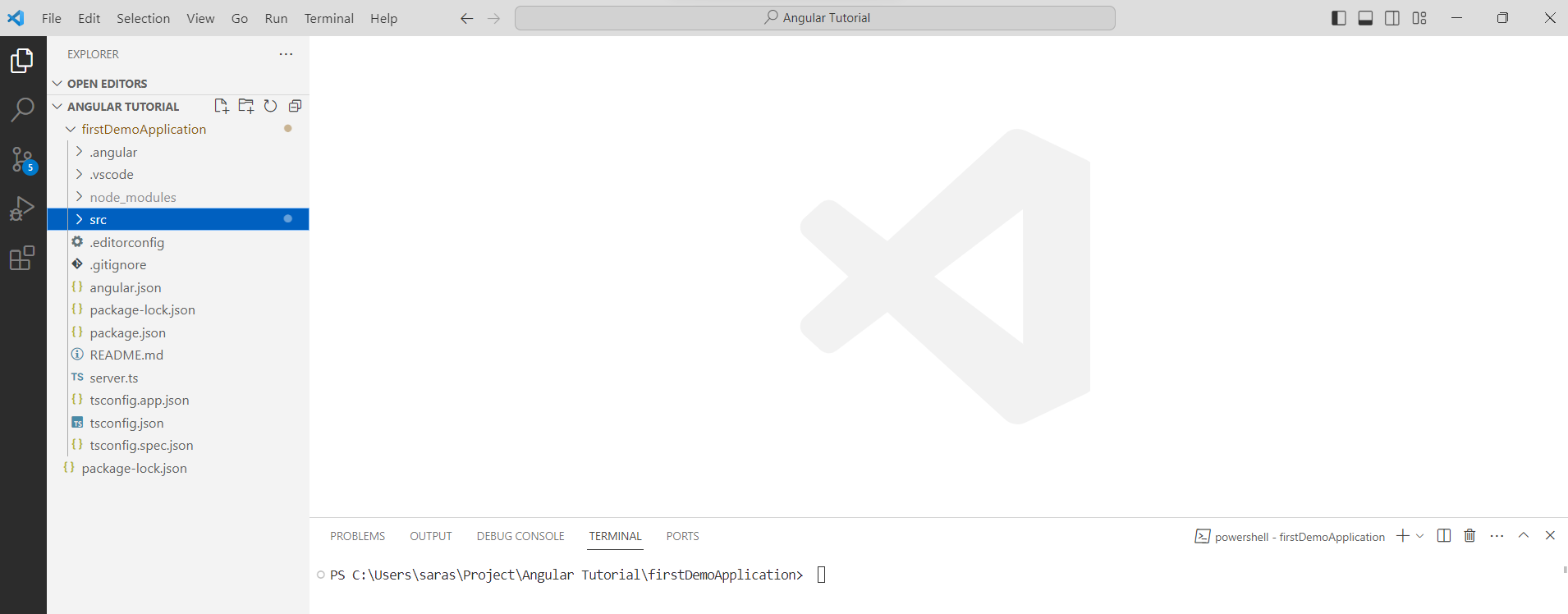Angular is a web framework that allows teams to deliver web app with confidence.
- Popular open source JavaScript/typescript framework.
- Allow to build dynamic, single-page application with ease
- Powerful feature & robust architecture.
Angular Framework Provides
- Two way data binding
- Dependency injection
- Component based architecture
- Excellent tooling support
- Seamless integration with other libraries
- Vibrant community of developers
How to Create First Angular Application
Follow given steps:
STEP 1:- Install Node JS:- download latest version of node from https://nodejs.org/en and install.(please refer given screen shot).

STEP 2:- Install Angular Cli:- Run command
npm i -g @angular/cliSTEP 3:- Create New Project:- Run given command
ng new projectName (after run command, Please refer given screenshot).

STEP 4:- Run ng serve for development and ng build for creating build.
Features of Angular 17:-
- Easier Server Side Rendering (SSR)
- New control flow syntax(@if, @for, @switch)
- Deferrable views(@defer)
- More stable Singles
- Better build performance
Control Flow Syntax:- Template syntax which is used for adding the control statement.
- If Statement
// Before Angular 17 (showUser is true)
<div *ngIf="showUser; else hideUser">
User exist
</div>
<ng-template #hideUser>
User is not exist;
</ng-template>// After Angular 17 (showUser is true)
@if(showUser){
User exist;
}
@else{
User is not exist;
}
- For Statement
// Before Angular 17 (userlist = [{“username”:”Krishna”},{“username”:”Rudra”}])
<ng-conatainer *ngFor="let user of userlist">
{{user.username}}
</ng-conatainer>
<ng-container *ngIf="userlist.length === 0">
Empty list of user
</ng-container>// After Angular 17 (userlist = [{“username”:”Krishna”},{“username”:”Rudra”}])
@for(user of userlist){
<p>{{user.username}}</p>
}
@empty{
<p>Empty list of user</p>
}
- Switch Statement
// Before Angular 17
<div [ngSwitch]="role">
<admin *ngSwitchCase="admin" />
<moderator *ngSwitchCase="moderator" />
<user *ngSwitchDefault" />
</div>// After Angular 17
@switch(role){
@case('admin') { <admin /> }
@case('moderator') { <moderator /> }
@default { <user /> }
}
Deferrable Views:- A fancy name given to the Lazy-loading feature.
// Before Angular 17
const routes: Routes = [
{
path: 'items',
loadChildren: () => import('./items/items.module').then(m => m.ItemsModule)
}
];
// After Angular 17
<button type="button">Click me</button>
@defer(on interaction(loadButton)){
} @placeholder {
showed until the file not begin loaded
} @loading {
showed during the loading of the file data
} @error {
showed if any error happens during loading
}
@place